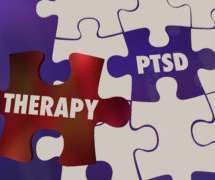Positive Autobiographical Memories in the Context of Posttraumatic Stress Disorder
Society of Clinical Psychology
MAY 9, 2023
Trauma exposure takes a toll on societies and individuals, leading to the development of posttraumatic stress disorder (PTSD) for a sizable minority of individuals (Magruder et al., As such, intervening on memory-related processes has been a key focus when treating PTSD. 2013), psychological problems (e.g., Bomyea et al.,




















Let's personalize your content